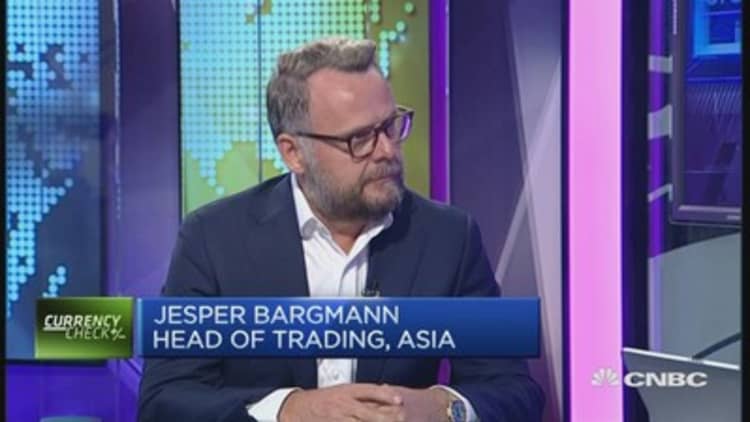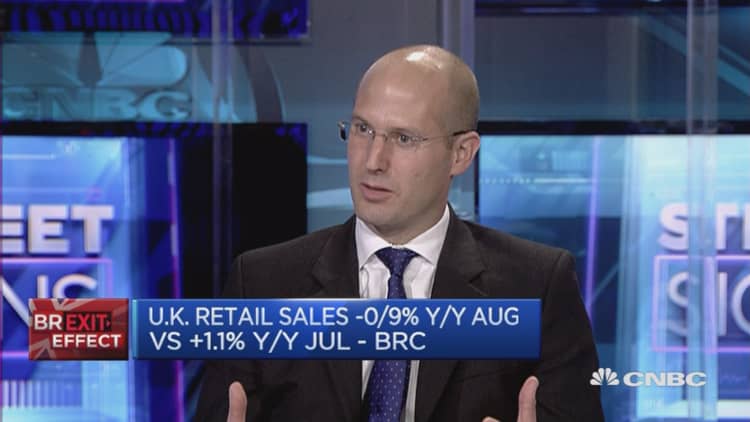The dollar fell to a more than one-week low against the yen on Wednesday after a report from the Sankei newspaper that Bank of Japan policymakers are divided ahead of the central bank's next meeting.
The Bank of Japan is split on whether to add stimulus at its Sept. 20-21 policy meeting, where central bank Governor Haruhiko Kuroda has said the board will conduct a comprehensive assessment of the effects of its massive stimulus program.
"The yen is strengthening on the back of this story and unwinding some expectations that the BOJ would ease policy at their September meeting," said Ian Gordon, FX strategist at Bank of America Merrill Lynch.

The dollar fell to its lowest against the since Aug. 26, when Federal Reserve Chair Janet Yellen gave an upbeat speech on the economy that revived bets of a rate hike in the near term.
The dollar has struggled against the yen since then, tumbling more than 1 percent on Tuesday alone.
Fed fund futures prices show investors see just a 15 percent chance that the Fed will raise U.S. short-term interest rates this month and a 50-50 chance of an increase by December, according to CME Group's FedWatch.
"Clearly, this is a challenging environment for the dollar," said ING currency strategist Petr Krpata.

On Wednesday, the greenback was down 0.23 percent against the yen at 101.75.
In Europe, sterling fell against the dollar for the first time in six sessions, hurt by weak factory data. It was 0.63 percent lower at $1.3336.
Sweden's crown rose 0.2 percent after the Riksbank stood pat on rates, as expected. The crown fell to a one-year low against the euro last week after a slew of weak economic data.
The Bank of Canada announced it would keep interest rates unchanged at 0.5 percent. The news reversed earlier selling in the Canadian dollar, which rose 0.35 percent.
The New Zealand dollar rose 0.53 percent against its U.S. counterpart, touching its highest since May 15, 2015. The kiwi has benefited from rising milk prices and the country's 2 percent short-term interest rate, which is well above the United States' 0.25 percent to 0.5 percent.
Investors will next look to the European Central Bank, which will announce the results of its policy meeting Thursday. It is expected to keep interest rates steady.

